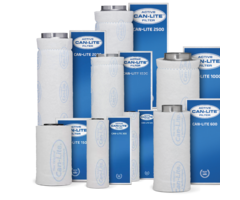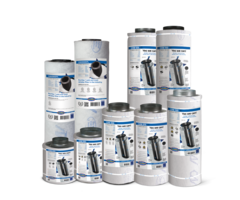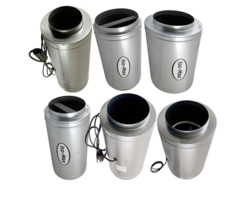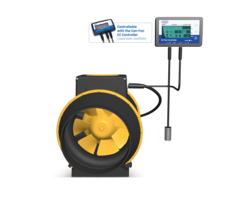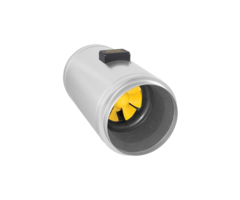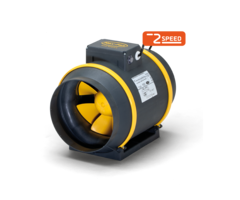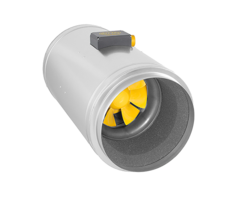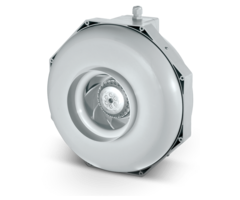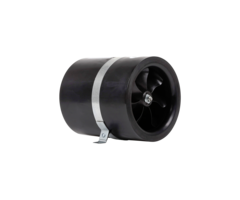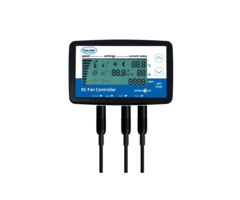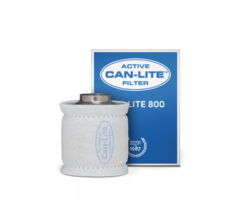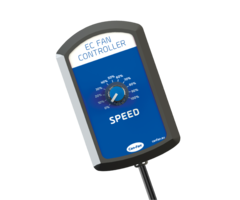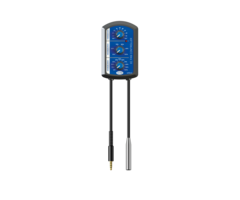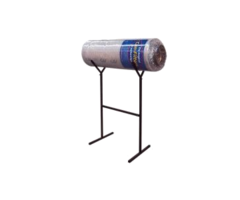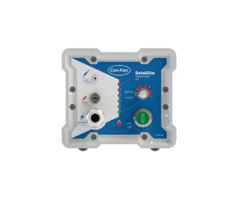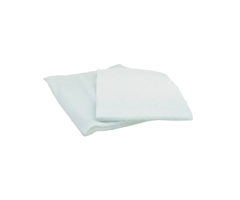CAN

CAN Filters: Operation, Materials and Maintenance
CAN Filters are an essential component in air purification systems used in a variety of environments, from home growers to large agricultural operations. These filters play a crucial role in removing unwanted odors, particles and chemicals from the air. They are specifically designed to work effectively in climate systems where air quality is an important factor.
The core of CAN Filters often consists of activated carbon, a material with an extremely large surface area that can effectively adsorb pollutants. Activated carbon is made from organic materials such as wood, coconut shells or coal, which are subjected a an special heating process. This creates a large number of microscopic pores capable of trapping and retaining pollutants.
The design of CAN Filters typically uses a cylindrical housing, often made of galvanized steel or stainless steel for added durability. The housing is constructed to allow air to flow evenly through the filter material, resulting in efficient filtration. In addition, these filters typically feature flanges at both ends, allowing for easy integration into existing ventilation or exhaust systems.
In terms of maintenance and service life, it is recommended that CAN Filters be checked regularly to ensure they are functioning optimally. Depending on usage and the level of contamination in the environment, the activated carbon should be replaced about once every 12 to 18 months. The housing itself usually lasts much longer and can be easily cleaned.
An important consideration when choosing a CAN Filter is the capacity of the filter, measured in cubic meters of air per hour (m³/h). This capacity must be consistent with the volume of the room and the power of the ventilation system to achieve optimal results. CAN-Filters are available in different sizes and capacities, making them suitable for both small and large spaces.
CAN Filters offer a reliable and effective solution for improving air quality in several applications. Their robust construction and use of high-quality materials make them a durable choice for air purification.

CAN Filters: Operation, Materials and Maintenance
CAN Filters are an essential component in air purification systems used in a variety of environments, from home growers to large agricultural operations. These filters play a crucial role in removing unwanted odors, particles and chemicals from the air. They are specifically designed to work effectively in climate systems where air quality is an important factor.
The core of CAN Filters often consists of activated carbon, a material with an extremely large surface area that can effectively adsorb pollutants. Activated carbon is made from organic materials such as wood, coconut shells or coal, which are subjected a an special heating process. This creates a large number of microscopic pores capable of trapping and retaining pollutants.
The design of CAN Filters typically uses a cylindrical housing, often made of galvanized steel or stainless steel for added durability. The housing is constructed to allow air to flow evenly through the filter material, resulting in efficient filtration. In addition, these filters typically feature flanges at both ends, allowing for easy integration into existing ventilation or exhaust systems.
In terms of maintenance and service life, it is recommended that CAN Filters be checked regularly to ensure they are functioning optimally. Depending on usage and the level of contamination in the environment, the activated carbon should be replaced about once every 12 to 18 months. The housing itself usually lasts much longer and can be easily cleaned.
An important consideration when choosing a CAN Filter is the capacity of the filter, measured in cubic meters of air per hour (m³/h). This capacity must be consistent with the volume of the room and the power of the ventilation system to achieve optimal results. CAN-Filters are available in different sizes and capacities, making them suitable for both small and large spaces.
CAN Filters offer a reliable and effective solution for improving air quality in several applications. Their robust construction and use of high-quality materials make them a durable choice for air purification.

CAN Filters: Operation, Materials and Maintenance
CAN Filters are an essential component in air purification systems used in a variety of environments, from home growers to large agricultural operations. These filters play a crucial role in removing unwanted odors, particles and chemicals from the air. They are specifically designed to work effectively in climate systems where air quality is an important factor.
The core of CAN Filters often consists of activated carbon, a material with an extremely large surface area that can effectively adsorb pollutants. Activated carbon is made from organic materials such as wood, coconut shells or coal, which are subjected a an special heating process. This creates a large number of microscopic pores capable of trapping and retaining pollutants.
The design of CAN Filters typically uses a cylindrical housing, often made of galvanized steel or stainless steel for added durability. The housing is constructed to allow air to flow evenly through the filter material, resulting in efficient filtration. In addition, these filters typically feature flanges at both ends, allowing for easy integration into existing ventilation or exhaust systems.
In terms of maintenance and service life, it is recommended that CAN Filters be checked regularly to ensure they are functioning optimally. Depending on usage and the level of contamination in the environment, the activated carbon should be replaced about once every 12 to 18 months. The housing itself usually lasts much longer and can be easily cleaned.
An important consideration when choosing a CAN Filter is the capacity of the filter, measured in cubic meters of air per hour (m³/h). This capacity must be consistent with the volume of the room and the power of the ventilation system to achieve optimal results. CAN-Filters are available in different sizes and capacities, making them suitable for both small and large spaces.
CAN Filters offer a reliable and effective solution for improving air quality in several applications. Their robust construction and use of high-quality materials make them a durable choice for air purification.

